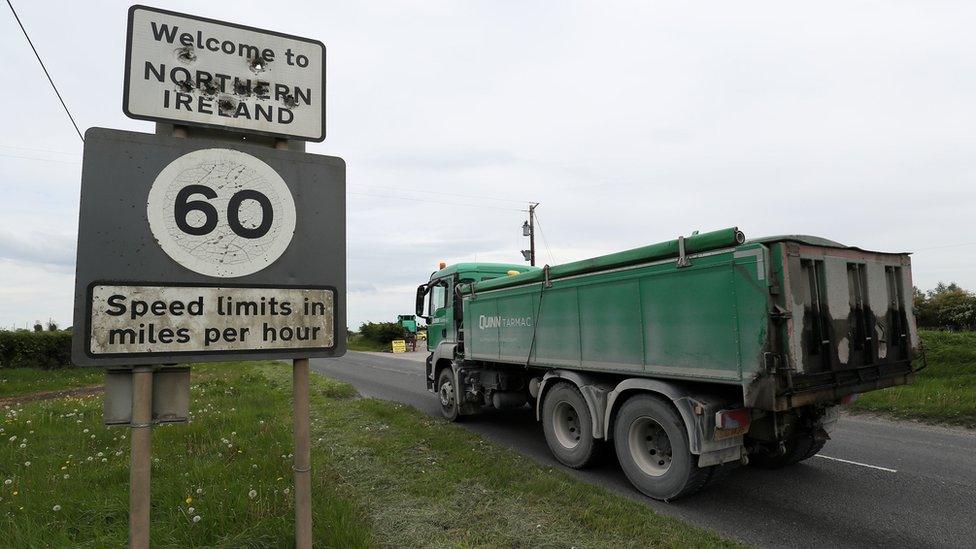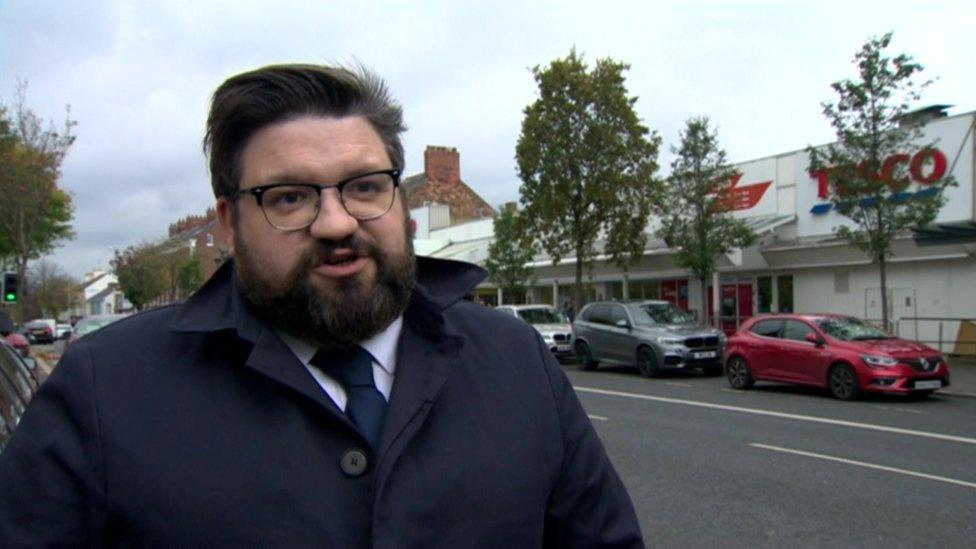Brexit: Second panel to advise on Irish border plan
- Published
- comments

A second panel is to advise the government on alternative arrangements for the Irish border after Brexit.
It will include business and trade union representatives from Northern Ireland and the Republic of Ireland.
The first group met last week and includes academics, customs experts and a police assistant chief constable.
Alternative arrangements mean ways of maintaining a soft border without the UK and EU being closely aligned on regulatory issues.
Some Brexit supporters believe the proposals could be used instead of the Irish border backstop.
The backstop is a position of last resort, to maintain a seamless border on the island of Ireland in the event that the UK leaves the EU without securing an all-encompassing deal.
It would involve the UK retaining a very close relationship with the EU for an indefinite period.
On Monday, a group of Brexit-backing MPs who set up their own alternative arrangements commission published a report suggesting the UK and Republic of Ireland could try to form a new single zone for food standards.
Many business and agri-food groups in Northern Ireland strongly supported the backstop and have warned of the impact a no-deal Brexit could have on the local economy.
'Complement first panel's work'
Members of the new business advisory group will meet for the first time on Wednesday.
It will be co-chaired by Brexit Minister Robin Walker and Business Minister Andrew Stephenson.
Its make-up includes Northern Ireland Retail Consortium director Aodhán Connolly, Angela McGowan, the Northern Ireland director of the CBI, and Wesley Aston, the chief executive of the Ulster Farmers' Union.

Northern Ireland Retail Consortium director Aodhán Connolly is among those on the panel
There are also representatives from the dairy and meat sectors, as well as engineering and manufacturing.
The government said the panel would complement the work and inform developments of the first group of experts, who are looking at possible alternatives to the backstop.
It said members would study processes associated with the movement of goods across borders and options for simplifying them, such as trusted trader programmes and advanced use of data and IT systems.
The EU has committed to exploring alternative arrangements once a withdrawal agreement is approved by MPs.
However, EU officials and the Irish government are sceptical about whether any of these that will be enough on their own to maintain a soft border.